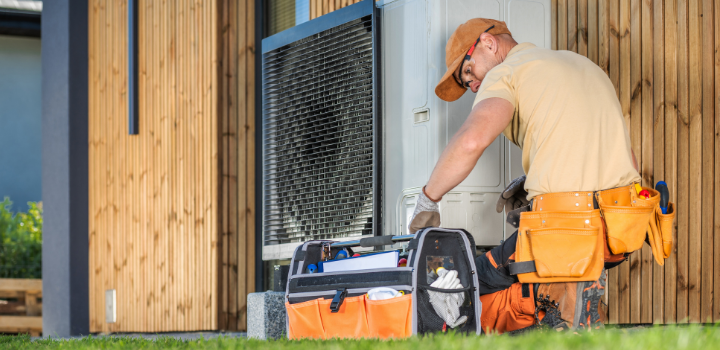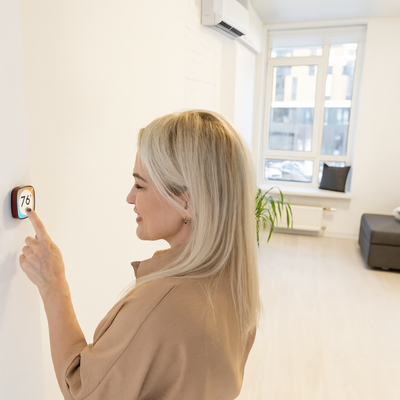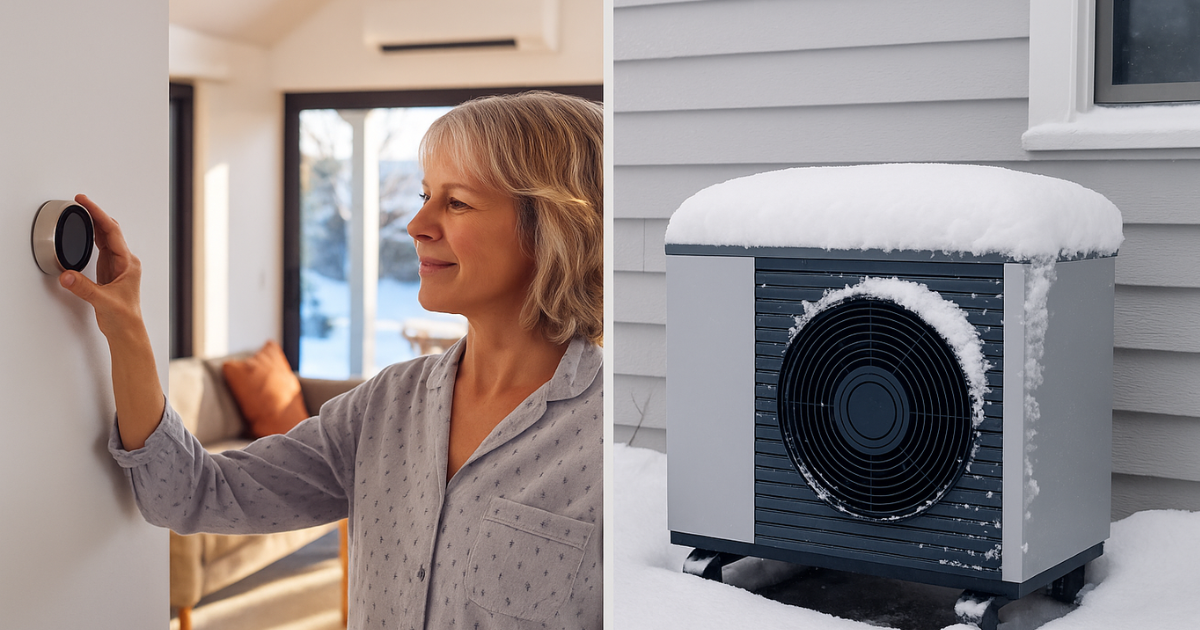How Much Does It Cost to Install a Heat Pump in Denver, CO?
Cost to Install a Heat Pump in Denver, CO

A Clear Answer Up Front
If you're a homeowner curious about what heat pump installation in Denver, CO costs, here's the straightforward answer: most families spend between $7,800 and $12,400 for a fully installed heat pump system, with the average falling around $11,000.
The wide range comes from factors like the size of your home, the efficiency rating of the unit, ductwork requirements, and available rebates and tax credits that can significantly lower the final price.
In fact, with federal and local rebates through Xcel Energy, some Denver homeowners see their heat pump installation costs reduced by thousands of dollars, making heat pumps not only efficient but also financially practical for long-term comfort and savings.
How Much Does a Heat Pump Cost for a 2000 Square Foot Home?
For a 2,000 square foot home, you're typically looking at $9,500–$13,000 before rebates for heat pump installation in Denver, CO. Why the variation? It depends on whether your home already has suitable ductwork, if you need a cold-climate model (which is a smart choice for Denver winters), and whether you want a ductless mini-split or a traditional ducted system.
Here's some local context: Denver's climate demands reliable cold-weather performance from any heat pump installed in the area. Brands like Mitsubishi's Hyper-Heating series are engineered to keep running even when temperatures dip below zero, which adds to upfront cost but saves significantly on long-term utility bills. Think of it like buying winter tires in Colorado—you pay more up front, but you'll be grateful you did when January rolls around.
What Is the Average Labor Cost to Install a Heat Pump?
Labor accounts for a significant portion of heat pump replacement or installation costs in Denver. On average, labor runs $3,000–$5,000, depending on the complexity of the project. Installing a heat pump isn't as simple as swapping out a furnace - it requires specialized expertise. Your HVAC technician may need to:
- Upgrade electrical connections to handle the new system
- Modify or install ductwork to ensure proper airflow
- Safely remove and dispose of old equipment
- Test and balance the system for year-round performance
- Appropriately design and size the system for your home’s needs
Choosing an experienced, NATE-certified local contractor for your heat pump installation can make a tremendous difference. The best installers don't just put in a system and walk away, a heat pump must be fine-tuned to your home to ensure peak efficiency and comfort in Denver's unique climate conditions.
A Local Story for Perspective
Consider this real Denver scenario: a Park Hill family was heating their 1920s bungalow with a 20-year-old gas furnace that required frequent emergency repair calls to their home. Their winter bills kept climbing, and the house never felt evenly warm throughout.
After switching to a Mitsubishi Hyper-Heat pump system through professional heat pump replacement services in Denver, CO, their upfront cost was $12,200—but after rebates and federal tax credits, they only paid about $8,700. Now, their monthly bills are lower, their home stays evenly comfortable year-round, and they've significantly cut their carbon footprint—all while investing in long-term savings that compound annually.
Stories like this are becoming increasingly common across Denver neighborhoods—from Highlands Ranch homes to smaller bungalows in Washington Park. Quality heat pump installation combined with available rebates make the financial numbers work favorably over time for most homeowners.
Step-by-Step Breakdown of Heat Pump Costs in Denver
Understanding the complete cost structure helps you budget effectively for heat pump replacement or installation in Denver, CO:
Equipment – $4,800–$8,000 depending on efficiency rating and capacity requirements
Labor/Installation – $3,000–$5,000 depending on project complexity and your home’s needs
Ductwork/Electrical Upgrades – $1,000–$3,000 if modifications are needed for optimal performance
Rebates & Credits – Up to $13,000 combined federal plus local incentives available for qualifying installations
Bottom line: After rebates, many Denver homeowners find themselves paying closer to $7,000–$9,000 net cost for a high-efficiency system. This makes heat pumps much more accessible than many homeowners initially expect.
Understanding Long-Term Value Beyond Installation
While upfront heat pump installation costs matter, consider the ongoing benefits. Several Denver homeowners see 30-40% reductions in heating and cooling costs compared to traditional systems. Additionally, modern units require minimal heat pump repair services when properly maintained, offering 15-20 years of reliable performance.
The combination of lower monthly utility bills, reduced maintenance needs, and fewer HVAC emergency repair calls creates substantial long-term value that often exceeds the initial investment within 7-10 years.
Ready to Explore Your Options?
If you're in Denver, CO, and considering installing a heat pump in your home, the smartest next step is getting a customized estimate. Every home presents unique requirements, and a local expert can help you understand upfront costs, projected long-term savings, and which rebates you qualify for based on your specific situation.
Quality heat pump service begins with choosing the right partner for your installation or replacement. Look for contractors who understand Denver's climate challenges, offer comprehensive warranties, assist you with navigating all available rebates and incentives, and provide ongoing support to protect your investment.
Ready to upgrade your home comfort with professional heat pump installation services?
Reach out today to schedule a friendly, no-pressure consultation. We'll walk you through the numbers, available rebates, and help you select the best system for your specific Denver home and budget.
Don't let another Colorado winter catch you unprepared—explore how modern heat pump solutions can transform your home's comfort while reducing your environmental impact and monthly energy costs.



